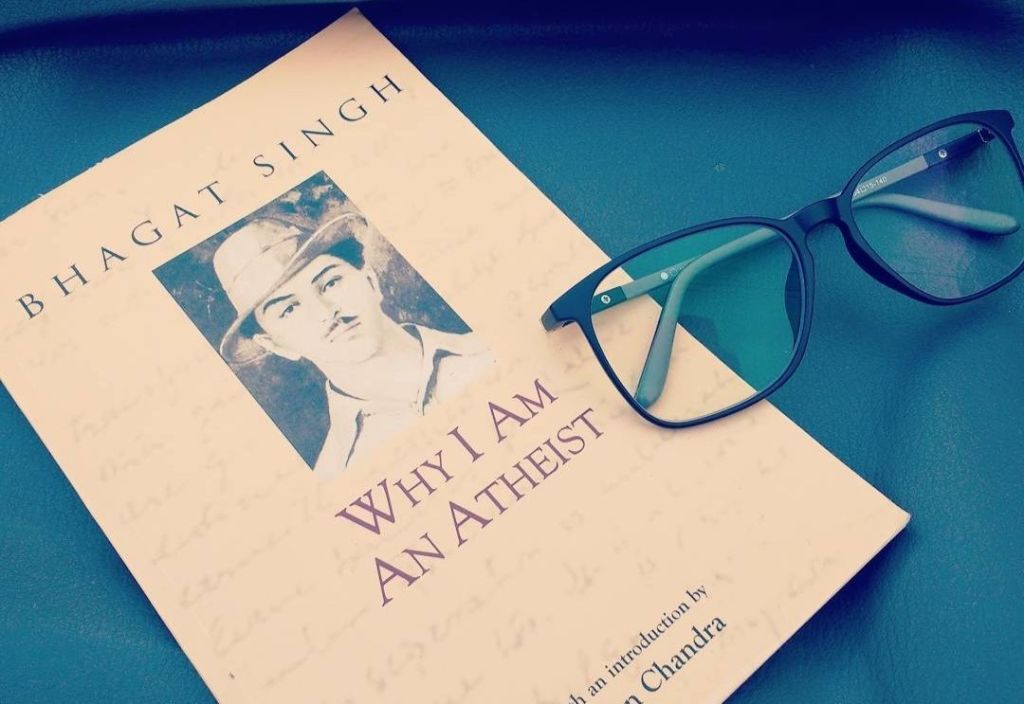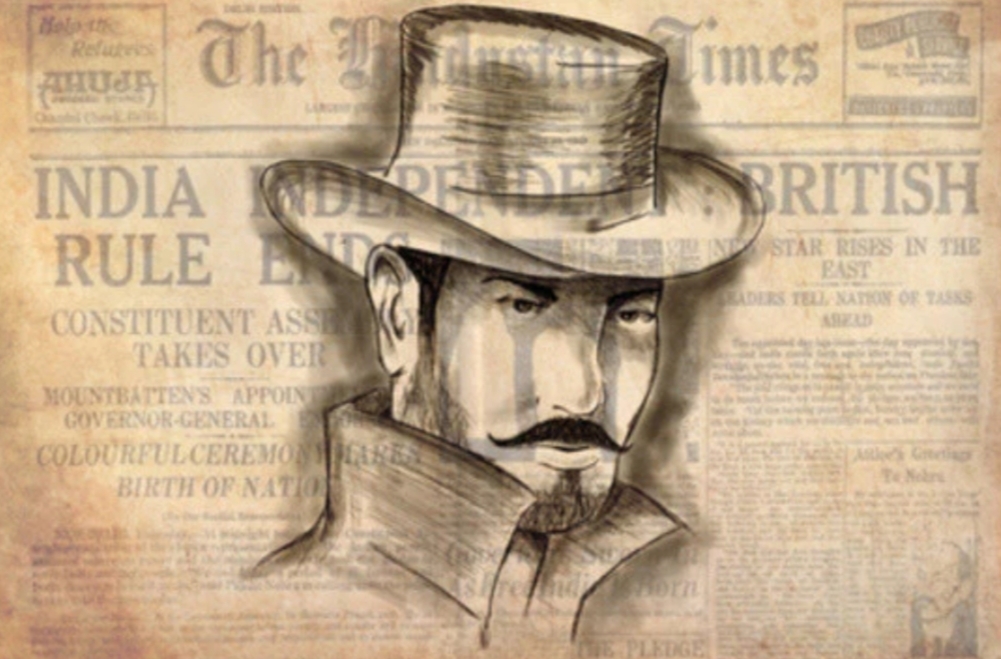If you’re an Indian, it’s unlikely that you wouldn’t have heard the name Bhagat Singh. For those of you who don’t know, he was a revolutionary who dared to challenge the British rule in India. His courage and defiance, even in the face of execution at the young age of 23, made him a national hero and a symbol of India’s fight for independence.
In this post, however, I won’t be discussing his call to fight against the British, but his battle cry against a different kind of oppressor–faith itself. His essay, Why I am an Atheist, which he wrote while he was locked in Lahore jail, resonates even today.
Note: If you want to listen to the complete essay (Why I am an Atheist), please click here.
Let’s discuss various ideas that Bhagat Singh discusses in this essay.

The consolations of faith
Bhagat Singh starts by recognising the consolation that comes with the idea of afterlife. However, he immediately rejects such beliefs, by suggesting that it’s a clear departure from reality.
Further, he mentions that he wasn’t an atheist out of vanity, as some claimed.
“Let us differentiate between pride and vanity,” he writes. True pride, he argues, lies in a “cult”–his revolutionary ideals–not in a rejection of God.
What more consolation can there be! A God-believing Hindu may expect to be reborn a king; a Muslim or a Christian might dream of the luxuries he hopes to enjoy in paradise as a reward for his sufferings and sacrifices. What hope should I entertain? I know that will be the end when the rope is tightened round my neck and the rafters move from under my feet. To use more precise religious terminology, that will be the moment of utter annihilation. My soul will come to nothing. If I take the courage to take the matter in the light of ‘Reward’, I see that a short life of struggle with no such magnificent end shall itself be my ‘Reward.’ That is all.
Why I am an Atheist
What’s the alternative, you might ask? Bhagat Singh proposes another source of strength–the courage to confront reality, even its harshest aspects.
If God exists, then why is there suffering in the world?
Bhagat Singh’s atheism stemmed from a deep reflection on the human condition. He couldn’t reconcile the concept of an all-powerful, benevolent God with the world’s suffering.
“This world of woes and miseries, a veritable, eternal combination of numberless tragedies,” he writes, citing poverty, war, and oppression as stark evidence against divine intervention.
If God truly held the reins, wouldn’t these miseries cease to exist?
Did the God create man?
Bhagat Singh, like many other atheists, believed that it was the other way around. That it was the man who, because of his fear, insecurity and desire for power, came up with this fanciful idea.
He also questions that if God controls everything, aren’t humans simply preordained to follow a script? This, he argues, renders human action meaningless.
As regards the origin of God, my own idea is that having realised the limitations of man, his weaknesses and shortcoming having been taken into consideration, God was brought into imaginary existence to encourage man to face boldly all the trying circumstances, to meet all dangers manfully and to check and restrain his outbursts in prosperity and affluence. God both with his private laws and parental generosity was imagined and painted in greater details. He was to serve as a deterrent factor when his fury and private laws were discussed so that man may not become a danger to society. He was to serve as a father, mother, sister and brother, friend and helpers when his parental qualifications were to be explained. So that when man be in great distress having been betrayed and deserted by all friends he may find consolation in the idea that an ever true friend was still there to help him, to support him and that He was almighty and could do anything. Really that was useful to the society in the primitive age. The idea of God is helpful to man in distress.
Why I am an Atheist
What’s Bhagat Singh’s answer?
Bhagat Singh stood for rationality, instead of faith. He wanted us to question, to analyse, to reject blind faith in favour of critical thinking. In the essay, he provides quite a simple approach to pursue an intellectual life.
Any man who stands for progress has to criticise, disbelieve and challenge every item of the old faith. Item by item he has to reason out every nook and corner of the prevailing faith. If after considerable reasoning one is led to believe in any theory or philosophy, his faith is welcomed. His reasoning can be mistaken, wrong, misled and sometimes fallacious. But he is liable to correction because reason is the guiding star of his life. But mere faith and blind faith is dangerous: it dulls the brain, and makes a man reactionary.
Why I am an Atheist
You may agree with Bhagat Singh or you may disagree, but you have to admire the courage of a young man who, staring down death, was urging others to fight for a world built on reason, not divine intervention. That’s precisely the reason we remember Socrates today–and that’s precisely the reason that we’ll continue to remember Bhagat Singh.
